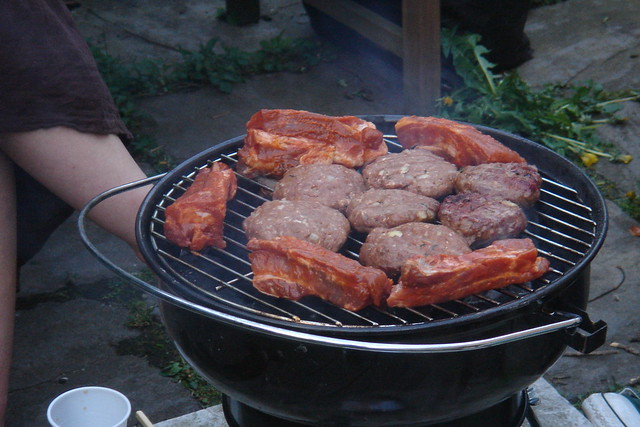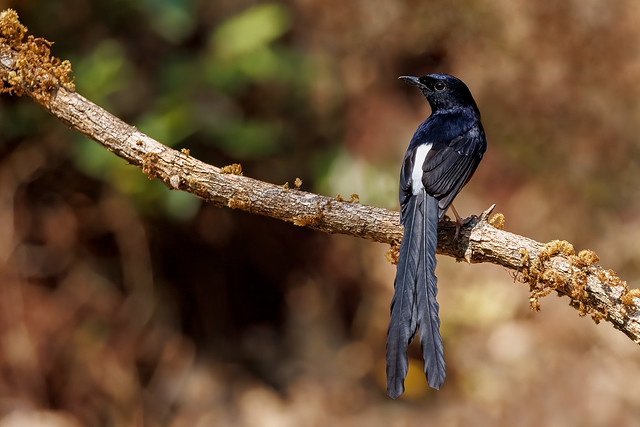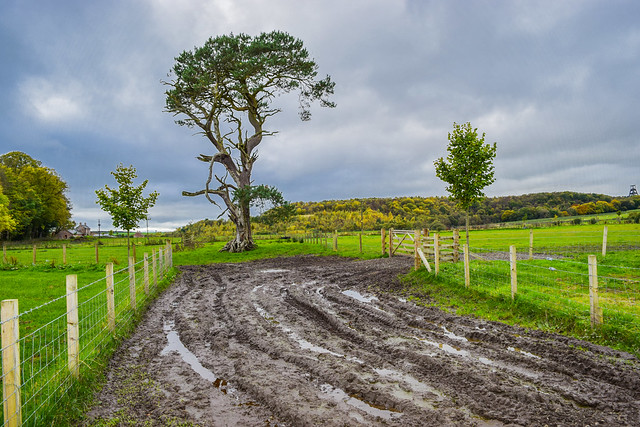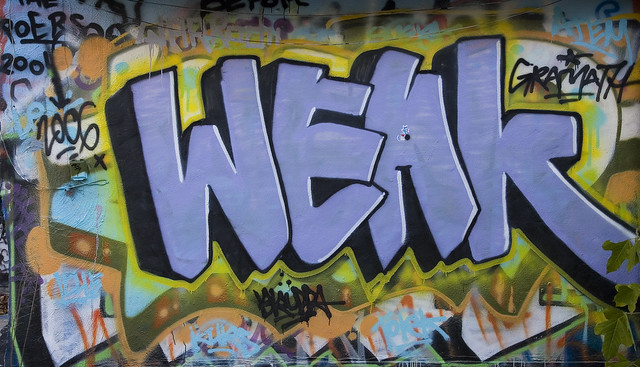Today we’re looking at the words for meat, flesh, breast and related things in Celtic languages.
Words marked with a * are reconstructions.
| Proto-Celtic | *kīkos = breast |
|---|---|
| Primitive Irish | ᚉᚉᚔᚉᚐ (ccica-) = breast ᚉᚉᚔᚉᚐᚋᚔᚅᚔ (ccicamini) = male given name |
| Old Irish (Goídelc) | cích [kʲiːx] = breast Cíchmuine [ˈkʲiːxmunʲe] = male given name |
| Middle Irish (Gaoidhealg) | cích [kʲiːx] = pap, breast, nipple, teat cíchech, cīgech [ˈkʲiːxʲəx] = big-chested Cichmuine, Cichmhuine, Cíchmaine = male given name |
| Irish (Gaeilge) | cíoch [ciəx] = breast, pap, papilla, protuberance cíochach = mammary cíochbheart = bra(ssiere) cíoch-chruthach = mammiform |
| Scottish Gaelic (Gàidhlig) | cìoch [kʲiəx] = breast, pap cìochach [kʲiəxəx] = mammary, pertainning to breasts, ample-bosomed cìochag cìoch [kʲiəxag] = valve, small breast cìocharan [kʲiəxan] = suckling infant |
| Manx (Gaelg) | keeagh [kiːx] = breast, bud, nipple, pap, teat keeaghagh = mammary |
| Proto-Brythonic | *kig = meat |
| Middle Welsh (Kymraec) | cic, kic = meat cigva meat market, butcher’s shop, shambles, slaughter-house, carnage cicbran, cicuran, kigvrain, kicfran = raven kicawc, kigawc = meaty, fleshy kiccyd, kygyd, kigydd = butcher |
| Welsh (Cymraeg) | cig [kiːɡ] = meat, flesh cigaf, cigo = to fatten, become fleshy cigaidd = meaty, fleshy, bloody, cruel, carnivorous, cigfa meat market, butcher’s shop, shambles, slaughter-house, carnage cigfran = raven cigog = meaty, fleshy cigydd = butcher |
| Old Cornish | cic, chic = meat, flesh |
| Middle Cornish (Cernewec) | cig, kig = meat, flesh cigliu = flesh-coloured cigver, kiguer = flesh-fork |
| Cornish (Kernewek) | kig = meat, flesh kiger, kigores = butcher kigereth = butchery, slaughterhouse kigliw = flesh (colour), pink kigti, kigva = butcher’s, butchery, slaughterhouse |
| Old Breton | cic = meat, flesh |
| Middle Breton (Brezonec) | quic = meat, flesh quicguec = fleshy, muscled |
| Breton (Brezhoneg) | kig [kiːk] = meat, flesh kigder = overweight kigek = fleshy, muscular, plump kigenn [ˈkiːɡɛn] = complexion, muscule kigennan, kigennañ = to build muscule, to heal kigennek [kiˈɡɛnːek] = muscule kiger [ˈkiːɡɛr] = butcher kigerezh [ki.ˈɡɛː.rɛs] = butcher’s shop |
Etymology: assumed to be of expressive/imitative origin [source].
| Old Irish (Goídelc) | brollach = breast, bosom, chest |
|---|---|
| Middle Irish (Gaoidhealg) | brollach, brothlach = breast, bosom, chest |
| Irish (Gaeilge) | brollach [bˠəɾˠˈl̪ˠax/ˈbˠɾˠɔl̪ˠəx] = breast, bosom, front, beginning, preface, prologue brollaiocht = close wrestling |
| Scottish Gaelic (Gàidhlig) | brollach [brɔl̪ˠəx] = bosom, breast, bust, chest, brisket |
| Manx (Gaelg) | brollagh = bosom, breast |
Etymology: related to the Old Irish bruinne (breast) and brú (belly) [source]. See also the post about Hills
| Proto-Celtic | *weɸolis = flesh, meat (?) |
|---|---|
| Old Irish (Goídelc) | feóil, féuil [fʲeːu̯lʲ] = flesh, meat |
| Middle Irish (Gaoidhealg) | feóil, feól = flesh, meat feólaigid = to make or form flesh feólairecht = butchery, slaughter feólamail = the flesh, worldly feólmar = fleshy |
| Irish (Gaeilge) | feoil [fʲoːlʲ/fʲɔːlʲ] = flesh, meat feoilteach = carnivorous feoilteoir = carnivore feoilséantóir = vegetarian feoilaire = butcher feoilmhar = fleshy, fat, flabby |
| Scottish Gaelic (Gàidhlig) | feòil [fjɔːl̪ˠ] = flesh, meat feòil-itheach [fjɔːl̪ˠ içəx] = carnivorous feòil-itheadair [fjɔːl̪ˠ içədɪrʲ] = carnivore feòil-sheachnair = vegetarian |
| Manx (Gaelg) | feill [feːlʲ] = flesh, meat feillagh = fleshy, meaty feill-eeagh = carnivorous feilleyder = butcher feill-haghnagh = vegetarian (adj) feill-haghneyder = vegetartian (person) |
Etymology: uncertain [source].
| Old Irish (Goídelc) | cnes = skin |
|---|---|
| Middle Irish (Gaoidhealg) | cnes, cnis, cneis, cneas = skin, surface, body, flesh, bosom, breast |
| Irish (Gaeilge) | cneas [cnʲasˠ/cɾʲasˠ] = skin, good appearance cneasach = covered with skin, cutaneous cneasaí = close companion, spouse, healer cneasaigh = to cicatrize, heal cneasluiteach = skintight |
| Scottish Gaelic (Gàidhlig) | cneas [krʲẽs] = skin, bosom cneasachadh [krʲesəxəɣ] = (act of) squeezing, tightening, pressing, making slender, curing, healing |
| Proto-Brythonic | *knōto- = flesh (?) |
| Middle Welsh (Kymraec) | knaud, cnaut, knaỽt, knawt = flesh knowdio = to incarnate, gather flesh, be conceived knaỽtaỽl, knaỽdaỽl, knoawdol = bodily, carnal, physical, sensual, fleshy, plump |
| Welsh (Cymraeg) | cnawd [knau̯d] = flesh cnawdaidd = pertaining to the flesh, carnal cnawd(i)edig = fleshy, carnal cnawdiad = incarnation, putting on of flesh cnawdiaf, cnawdio = to incarnate, gather flesh, be conceived cnawdig = fleshy, carnal, fat, plump cnawdol = bodily, carnal, physical, sensual, fleshy, plump |
| Cornish (Kernewek) | kneus = skin |
| Breton (Brezhoneg) | kneud = carnality, fleshliness (?) |
Etymology: possibly from PIE *kneu-t- [source].
More Celtic words for breast and meat can be found on the posts about Hills, Central Hearts, Baskets, Wings, Bones, Fatty Lard and Food
Sources: Wiktionary, Etymological Dictionary Of Proto Celtic, In Dúil Bélrai English – Old Irish glossary, eDIL – Electronic Dictionary of the Irish Language, Teanglann.ie, Am Faclair Beag, An etymological dictionary of the Gaelic language, Fockleyreen: Manx – English Dictionary, Online Manx Dictionary, Gaelg Corpus, Geiriadur Prifysgol Cymru, Lexicon cornu-britannicum : a dictionary of the ancient Celtic language of Cornwall, Gerlyver Kernewek, Devri : Le dictionaire diachronique du breton, Dictionnaires bilingues de Francis Favereau / Edition Skol Vreizh, TermOfis












